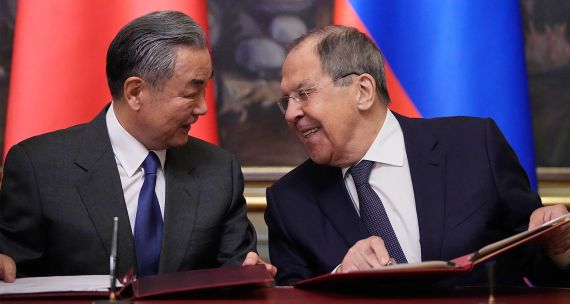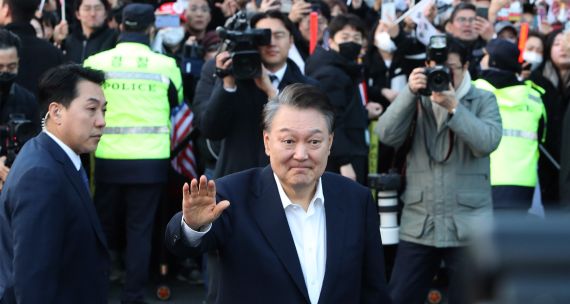Last month, Taiwan held its seventh free and open presidential election, along with elections to its legislature, the Legislative Yuan.
The incumbent, 53-year-old Dr. Tsai Ing-wen, Taiwan's first and only female president, was returned with a record 8.2 million votes, winning 57 per cent of the popular vote and handily beating her main rival, Kuomintang (KMT) candidate Han Kuo-yu. Tsai's party, the Democratic Progressive Party (DPP), retained its majority in the legislature. Voter turnout was 75 per cent, and despite the ongoing threat of military force by China and reported attempts by China to disrupt the elections through social media manipulation, all went smoothly, peacefully, respectfully and without incident.
Tsai’s convincing win can be attributed to China, even though Beijing preferred the more compliant KMT to win the presidency and take control of the legislature. Given Tsai’s plummeting popularity in 2018 – halfway through her first term – owing to a number of fumbled domestic files such as pension and labour reform, a KMT win at that time looked like a real possibility. But in a major speech in 2019 to mark the 40th anniversary of a call from Beijing to end military confrontation across the Taiwan Strait, Chinese President Xi Jinping trumpeted “one country, two systems” as the solution to the standoff between Beijing and Taipei – while threatening the use of force as a final resort.
Shortly after that, the wheels began to fall off the "one country, two systems" solution. In Hong Kong, a million people took to the streets to protest Beijing's interference and manipulation of the "one country, two systems" framework there, followed by heavy-handed police suppression of many of the demonstrations. This was a gift to Tsai's party, which was seen by the electorate as the best choice to stand up for Taiwan's autonomy. In her victory speech, Tsai referred to "one country, two systems" as "entirely unacceptable" for Taiwan, but noted that she was committed to peaceful and stable cross-strait relations.
China's reaction to Tsai's re-election was predictable. The state-owned media organ, Xinhua, claimed she used "dirty tactics" such as cheating, repression and intimidation to get votes, and blamed anti-China political forces in the West. But how did other countries react?
U.S. Secretary of State Mike Pompeo tweeted that "the U.S. congratulates Dr. Tsai Ing-wen on her re-election ... Taiwan once again demonstrates the strength of its robust democratic system." Japanese Foreign Minister Motegi Toshimitsu said that "the government of Japan congratulates the smooth implementation of the democratic election and Ms. Tsai on her victory again." United Kingdom Foreign Secretary Dominic Raab extended "warm congratulations to the people of Taiwan on the smooth conduct of the elections and to Dr. Tsai Ing-wen and her party on her re-election." Australia's Foreign Affairs and Trade website noted that "Australia congratulates Dr. Tsai Ing-wen and her party on her re-election ... Australia also congratulates the people of Taiwan on the peaceful exercise of their democratic rights."
And how about Canada?
Canada managed to issue a statement on Facebook through the Canadian Trade Office in Taipei, Canada's unofficial representative office in Taiwan, a bland statement not attributed to any particular individual, let alone anyone in Canada. "Canada congratulates the people of Taiwan for the recent election." That's it. No mention of who won, no mention of Dr. Tsai, no mention of how the elections were conducted.
The statement did go on to talk about strengthening people-to-people relationships and trade and investment ties between Canada and Taiwan, as indeed did statements by other countries. But in terms of a congratulatory message, it was pretty tepid. And in comparison with other national statements, it stands out as overly cautious, "politically correct" to a fault, and frankly, disappointing.
Canada, of course, adheres to the "one China" principle, as do almost all other countries, recognizing Beijing as the sole government of China. Does that include Taiwan? According to Beijing it does, and Canada "took note" of Beijing's claims to Taiwan as part of the formula leading to recognition of the People's Republic of China in 1970. (Taking note means neither accepting nor challenging Beijing's position.) That formula nonetheless gives countries that recognize Beijing considerable leeway in dealing with Taiwan, which has all the attributes of an autonomous state and is a member of both the WTO and APEC. "Unofficial" ties with Taiwan are not precluded, non-diplomatic representative offices have been established, and senior officials, indeed ministerial-level officials, have been known to make "private" visits. Canada has been careful not to be at the cutting edge of developing relations with Taiwan (fair enough – leave that to the U.S.), but it is not even in the middle of the pack, as the comparison of congratulatory messages clearly shows. We lag, and it is noticed.
There is no need to gratuitously offend China – we have enough bilateral issues as it is – but there is also no need to refrain from fully exploiting our ability to support the values we profess to stand for by extending some explicit moral support to the people of Taiwan and those whom they have freely elected. There is also the advancement of Canada's larger economic and security interests in the Asia Pacific to consider. More active engagement with Taiwan would help expand bilateral trade and investment, while from a security perspective, maintenance of the status quo in the Taiwan Strait is a key objective. One opportunity currently under study in Ottawa is encouraging Taiwan's membership in the new CPTPP trade bloc, a move that is fully consistent with Canada's one-China commitments.
Congratulatory messages are generally formulaic, but words count, especially in the current circumstances when the people of Taiwan have stood up for their rights and pushed back against intimidation and electoral meddling. Canada needs to do better in terms of its messaging if we really want people in the region to take us seriously.
Fortunately, Canada has recently stood up for Taiwan's participation in the World Health Organization with respect to global deliberations on control of the coronavirus despite Chinese opposition. Practical co-operation on global issues, such as health pandemics, should trump political considerations concerning nomenclature and claims of jurisdiction.
Hugh Stephens is a Distinguished Fellow with the Asia Pacific Foundation of Canada. He served as Executive Director of the Canadian Trade Office in Taipei from 1995 to 1998.
This piece first appeared in The Ottawa Citizen on February 4, 2020.





